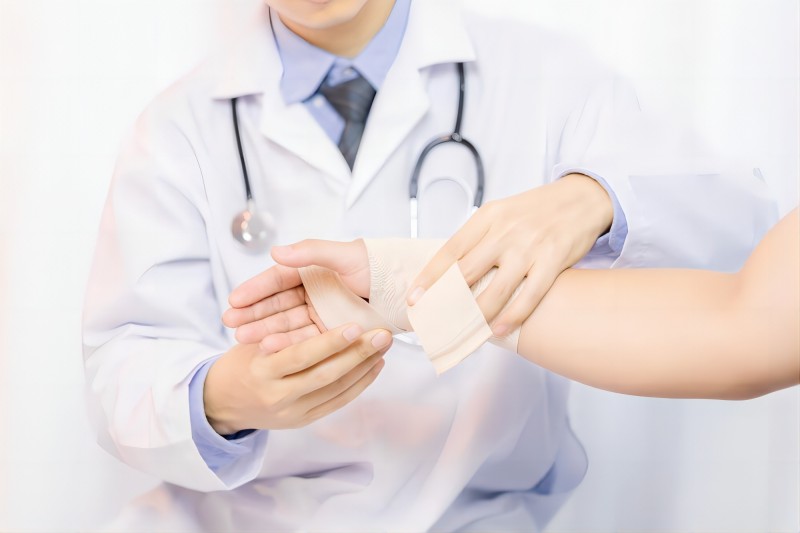Whether it is a puncture examination or surgery, a small wound will be left temporarily. Taking into account the suggestions given by medical staff, as patients, we also need to take “careful care” of our wounds to avoid other problems that may affect the overall condition. The process of recovery.
The Department of Surgery at Beijing United Family Hospital has now issued detailed and scientific wound care recommendations on postoperative wound care. Some common questions and conditions that need to be paid attention to during recovery can be answered.
Postoperative wound care recommendations
1. The dressing can be removed 24-48 hours after surgery;
2. Keep the wound clean and dry;
3. When you feel it is easier to move, you can take a shower or use a sponge to bathe under the premise of using a waterproof compress, but do not scrub the injured area;
4. If the doctor recommends using antibiotic ointment, please apply a thin layer on the wound after cleaning it and bandage it.
Please contact your doctor immediately if:
1. The wound becomes more red and swollen;
2. There is pus oozing from the wound;
3. The body temperature reaches above 38 degrees Celsius (100.4 degrees Fahrenheit);
4. Other situations that make you worried.

FAQs of Wound care
Q1. Can I take a shower today?
You can take a shower when you feel you can move around easily.
You can prepare a waterproof dressing and apply it in the shower. You can let the water run over the wound in the shower, but do not scrub or soak the wound in the water as this may prevent it from healing.
Q2. Can I swim when I go on holiday to the beach next week?
No. Do not soak the wound in water until it has healed.
Even waterproof dressings cannot withstand prolonged immersion in water, so it is safer to avoid swimming/baths or bathing for a while until the wound has fully healed in 3-4 weeks.
Q3. What should I avoid eating before the wound heals?
As long as there are no food allergies, you can eat whatever you want during the healing period. Ensuring adequate protein intake will help the wound to heal.
Q4. How long does it take to remove the stitches?
Usually, the stitches can be removed 7-10 days after surgery, depending on the actual condition of the wound. The richer the blood supply and the less tension in the wound area, the sooner the stitches can be removed.
For example, a facial wound can be removed in 3-5 days, while a back wound can take 7-10 days. The doctor will inform you of the exact time of suture removal after the sutures have been placed, but if you are still in doubt, you can check with the doctor again before you leave the hospital.
Q5. Will it leave a scar?
Yes, there is. Scar formation is related to a number of factors, including each patient’s body type.
During the first three months to a year of wound healing, the scar formed by the wound will continue to remodel, so you will need to be patient and wait for the wound to heal, especially during the first few weeks.
In fact, we can prevent infection by making sure the wound is well aligned / using the smallest possible stitches and threads / careful suturing techniques, or applying antibiotic ointment to the wound to prevent infection, all of which are ways to minimise scar formation.
To minimise scarring, you will need to keep the wound clean and dry and avoid sun exposure at the wound site for the first 6 months to a year (if you need to enjoy the sun, you can apply a high SPF sunscreen to the original wound site).
You can find out more from your doctor and ask if they can recommend anything more suitable.
Q6. Can I play sports/exercise?
Please avoid strenuous exercise for the first two weeks while your wound is healing.
If you have had a hernia operation or a long wound on the midline of your body, it is recommended that you do not exercise strenuously for six weeks. This is to prevent excessive tension from causing poor healing of the subcutaneous fascial layer or even postoperative incisional hernia.
We recommend walking as the preferred form of exercise after any surgery. You will need to exercise as much as your body tolerates and if the wound is painful, stop exercising and consult your doctor.
Translated with DeepL.com (free version)
